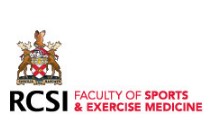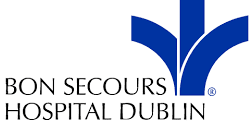Partial & Total Knee Replacements
Partial & Total Knee Replacements
Why do I need a knee replacement?
The main reason usually for a knee replacement is osteoarthritis. This is normally associated with wear and tear of the joint, resulting in pain, stiffness or restricted movement of the joint. The protective cartilage wears out resulting in the thigh (femur) and shin (tibia) bone rubbing together.
The purpose of the knee replacement is to replace the worn and damaged portions of the knee in order to relieve pain and restore function. The decision to proceed with this surgery is made when a patient’s daily life is affected and you can no longer sustain their day to day activities.

Types of knee replacements
There are two types of knee replacements, depending on the patient and the extent of wear and tear on the knee.

Partial knee replacement
Unicondylar Knee Replacement (UKR): A specific part of the knee joint is affected by arthritis and only this part of the knee joint is replaced.
Total knee replacement
Total Knee Replacement (TKR): The end of the femur and the top of tibia are replaced with metal components and a plastic spacer interposed.

Risks of Surgery
Medical risks are increased with certain conditions and obesity. This will be assessed at the medical check in the pre assessment clinic. The following are risks associated with a partial/total knee replacement:
- Infection (1:200)
- Significant DVT-PE (< 1%)
- Wound issues
- Fracture (<1%)
- Major bleeding or nerve injury (<1:1000)
- Stiffness (arthrofibrosis)
- Residual pain
- Repeat surgery
Pre-Assessment Clinic (PAC)
Once a decision is made with Mr Jackson to have a knee replacement, you will be required to attend the preassessment clinic in SSC. The appointment will be organised with Mr Jackson’s secretary. You will attend PAC generally 4-6 weeks prior to your admission. The aim of PAC is to ensure you are medically fit and prepared for surgery.
During your appointment at PAC, you will seen by a nurse and doctor. A number of tests are carried out including electrocardiogram (ECG), blood pressure and heart rate measurement, MRSA swabs, blood tests and BMI. A comprehensive medical and surgical history are also obtained.
Preparing for Surgery
The period after surgery can be demanding and require a commitment to ensure a successful outcome. It is advisable to have appropriate support in place and include the following:
- Move essential items to a height within easy reach to avoid bending or twisting.
- Move any rugs or cables that could be a tripping hazard when you are using crutches.
- Ensure your bed, chair and toilet are easy to get on and off safely.
- Ensure the shower area is safe and easy to manoeuvre.
Admission for Surgery
You will be admitted to SSC either the day before or morning of your surgery.
On admission you will check in at the reception area and be asked to confirm your details for your medical file. A member of the admissions department will accompany you to the inpatient ward waiting area.
On arrival onto the ward you will initially meet a healthcare assistant who will take your weight and height. This will be followed by a nurse who will complete all the required checks (blood pressure, pulse, etc), allergy status to any medications, medical and surgical history. It is important to give the nurse as much detail as possible regarding your medical status and if any previous issues with anaesthetics.
You cannot eat or drink anything for 6 hours prior to surgery so you will generally be fasting from midnight (for a morning operation) or 6am (for an afternoon operation). This includes chewing gum.
Checklist for Admission
It is important to remember the following for your duration of stay in SSC:
– Regular medications (in their original boxes)
– Comfortable clothes – day and night (loose clothes are advisable)
– Flat closed heel slippers and or walking shoes.
– Hearing aids and glasses
Before Surgery
- A nurse will accompany you to theatre. You will be met initially by the anaesthetic nurse.
- You will then meet Mr Jackson and the Anaesthetist in the anaesthetic room prior to the operation. Mr Jackson will draw an arrow on the knee that is being operated on.
- The anaesthetist will again ask you all the same questions as the nurse completed on the ward to ensure all information has been provided. They will also discuss the type of anaesthetic you will receive.
- Spinal Anaesthetic: the most commonly used anaesthetic. This involves an injection into your lower back that numbs the lower half of the body.
- General Anaesthetic: less commonly used for knee replacement surgeries unless otherwise advised by you anaesthetist.
- Sedation: if you are having a spinal anaesthetic, you will be sedated. This will be administered through a small tube in your hand and make you feel relaxed and sleepy.
After Surgery
- Once the surgery has been completed, you will wake up in the recovery room where they will closely monitor you for 1 – 2 hours.
- On returning to the ward, you may be a little drowsy which is normal. Nursing staff will check in regularly with you. You may also notice a number of things attached to you which may include an oxygen tube on your nose, foot pumps on your feet and a blood pressure monitor.
- It is expected to experience some pain, however nursing staff will monitor your pain and provide analgesia regularly. Some patients may feel nausea which is normal and medication can be administered to alleviate it.
The physiotherapy team will see you regularly throughout your stay. You usually begin to walk either on the same day, or the day following your procedure. Please do not mobilise by yourself for the first time, you must wait for a member of staff. The aim is to gain independence or minimal supervision with crutches as soon as it is safe to do so.
Regular pain medications are administered throughout your stay and it is important to report any pain once you experience it. The nursing staff will ask you to rate your pain using the following scale:

Day 1
The morning after surgery, staff will help you wash and get dressed. They will administer your regular medications and any pain medication you may require. They will check your dressing and perform regular checks on your blood pressure, heart rate and oxygen levels. The physiotherapy team will see you, teach you exercises and get you walking. If they have seen you on the day of your surgery they will progress you further.
Day 2 onwards
The nursing staff will encourage you to get washed and dressed independently as much as you can. The physiotherapy team will continue to check in with you. They will encourage you to practice your exercises independently. Once you are ready / safe you will practice the stairs.
Day of discharge
The length of stay can vary from person to person. Most people are discharged on day 2 or 3 and some may need to stay a bit longer. Mr Jackson and his practice nurse will review you prior to discharge. The ward nurse will change your dressing, provide a prescription and explain all discharge instructions. Please ensure you have your own medications also on discharge.
General advice
Return to driving is not permitted for 6 weeks. If you have an automatic car please discuss with Mr Jackson.
Flying is not recommended for 6 weeks after surgery to minimise the risk of a deep vein thrombosis.
Wound is closed with dissolvable stitches underneath the skin and covered with steri-strips (paper stitches) or clips, the nurse will advise on discharge. A waterproof dressing is placed over these and spares will be provided. At your follow up appointment your wounds will be checked. If you have any concerns regarding your wound please contact the office.
Showering with cling film wrapped around the dressings is advised. Ensure the shower/bathroom is set up prior to attending for surgery and easy to manoeuvre when arriving home.
Returning to work is not recommended for at least 6 weeks. This will be discussed with Mr Jackson and can vary depending on the type of work.
Follow up
- All knee replacements are reviewed at 2 weeks by Mr Jackson’s specialist physiotherapist and practice nurse.
- The physiotherapist will examine the movement of the knee and provide guidance on the next stages of rehab.
- The practice nurse will assess the wound, pain management and provide reassurance
in relation to any queries. - At 3 months you will be reviewed by Mr Jackson with a check in 1 year post surgery.
At any stage if you have any questions or concerns, you can contact the office and a member of the team will be in touch with you.










